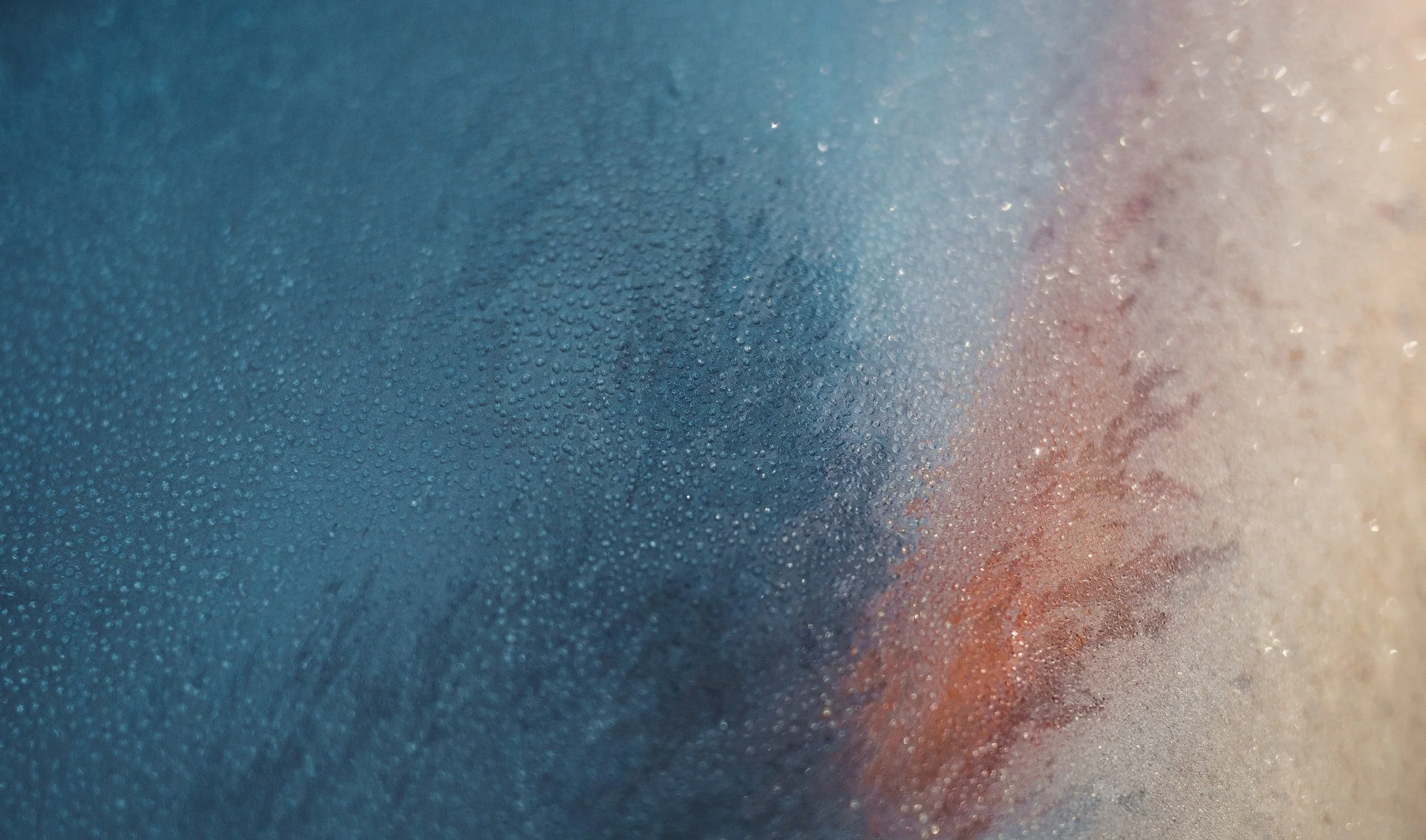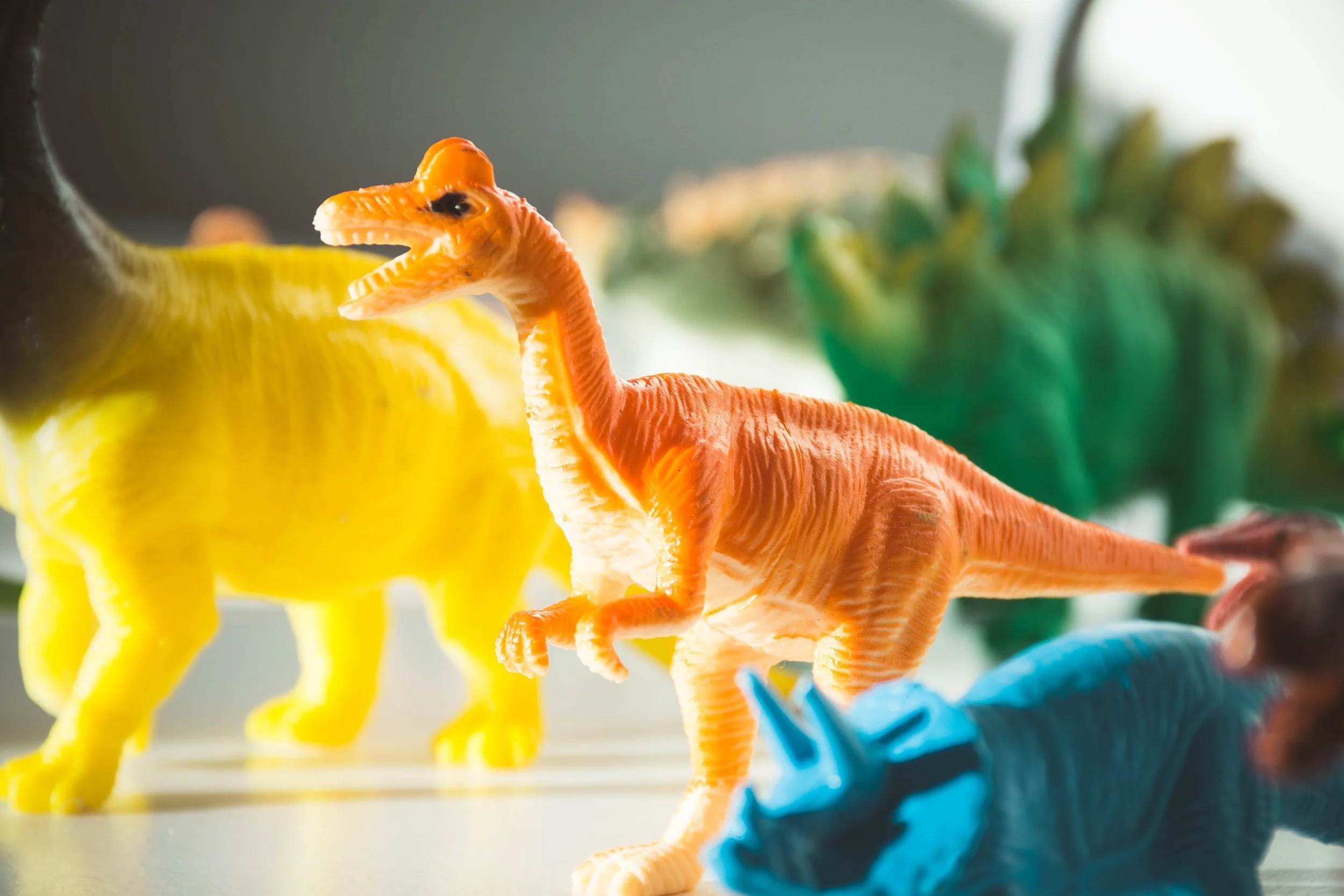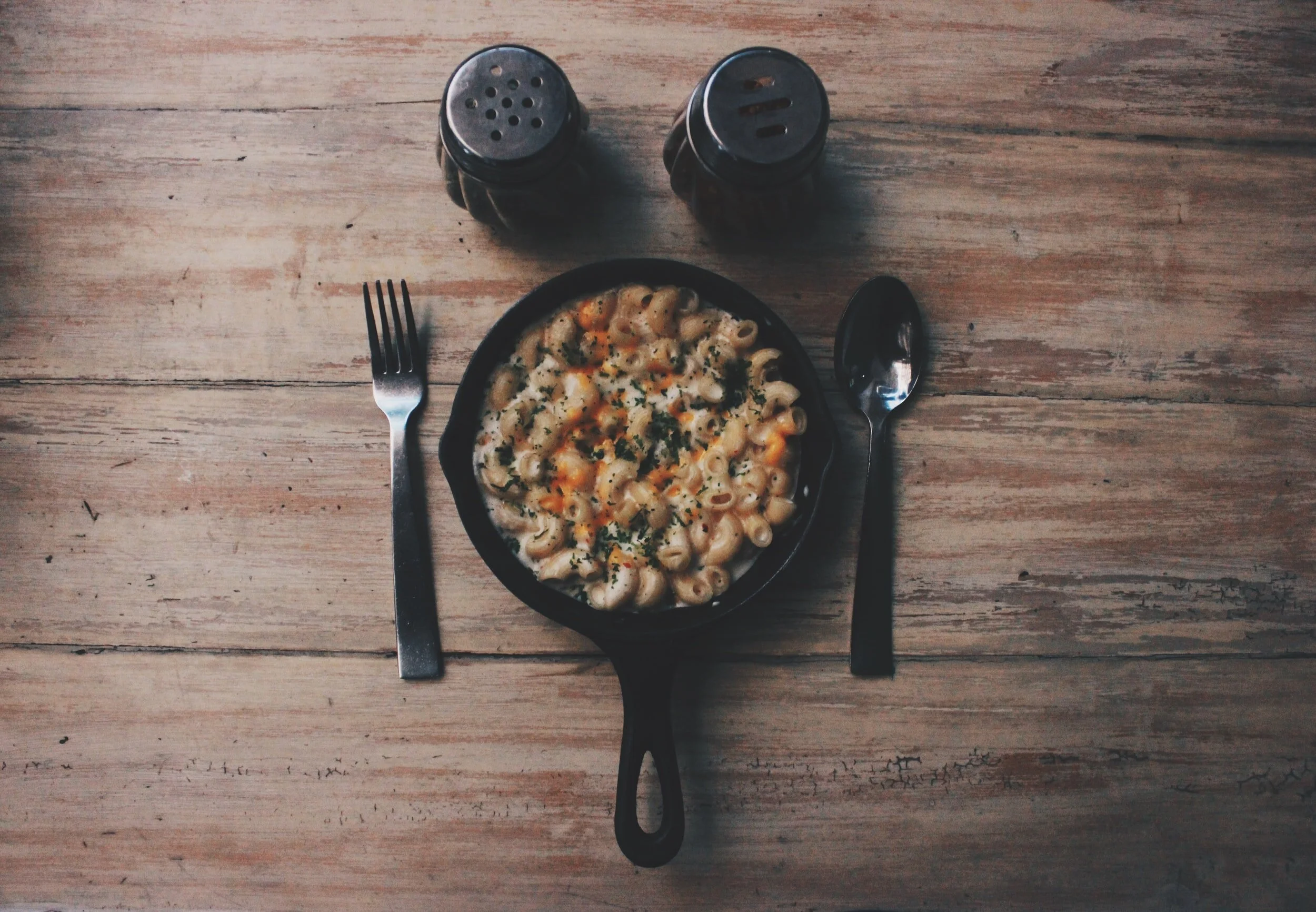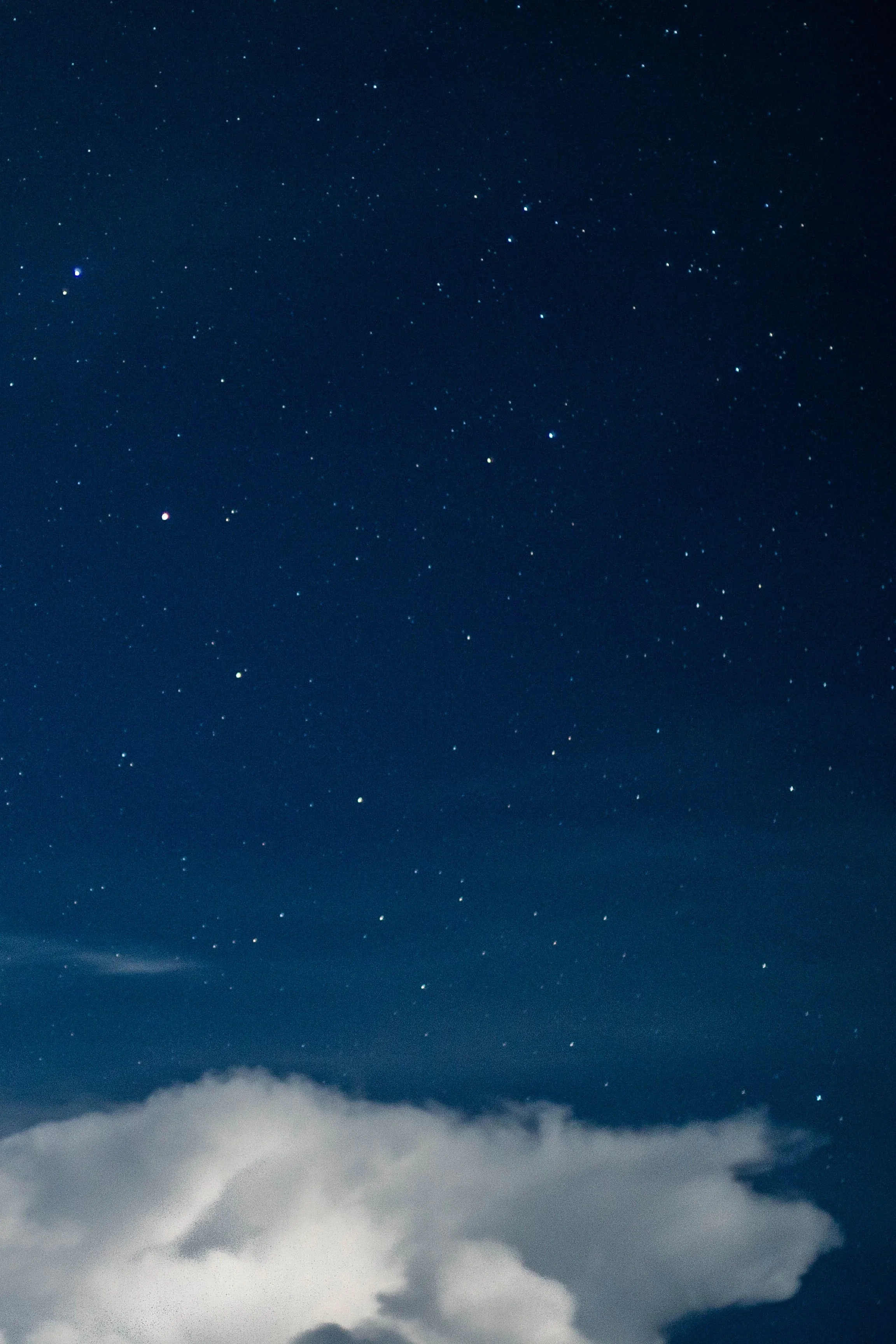Occupation
For Margaret Jean
Rose, I saw a picture of you today. The first one, I think, I’ve ever seen. Your face was kind, like my Gran’s. For some reason this surprised me. But you must have been kind. Your daughter is kindness personified. The photo was sent by Amanda, your granddaughter, my aunt. I’d fired off an email this morning, and by lunchtime there you were, sitting in my downloads. I tried to zoom in on your face, but you pixelated on my phone screen. You were sixty-three, sitting in the garden with Great-Grandpa on Amanda’s eighth birthday. My mother, a chubby toddler, sits on Great-Grandpa’s lap. Sixty-three is the age my parents are now, but you look much older than them. Maybe it’s your clothes, your hairstyle, or the black and white camera. Maybe it’s the war, the guilt and grief that you carried away from it.
I think of you as I plant out apple seedlings. We saved pips from our lunches and propagated them in the greenhouse-heat of the porch. Now the spindly trees, knee-high to a pre-schooler, are a miniature ‘orchard’. Something for the children to observe in the garden. Anything to keep them occupied during these lockdown days. Our little veg patch, populated with old carrot tops and potatoes left too long in the bag, is a far cry from yours, Rose. Your garden never grew enough to feed you, even with the extras that John brought back from labouring in the fields. How did you do it, knowing you might have to surrender your meagre harvest to the occupiers?
Before all this, I obsessed about my occupation. I would sit, stalled over a form or dropdown menu. Homemaker? Housewife? Stay-at-home-mum? Why do all options sound like a euphemism for house-arrest? Before children, I had a job, a title, a PhD, an office with my name on the door. A career trajectory. But then, life began to be measured out in washing-machine cycles. I am the family’s secretary, morning vigils on hold with the doctors’ surgery. I am nurse, cook, washer of clothes, wiper of bottoms and miscellaneous spills. Invisible behind the pushchair. My name erased; someone’s mum.
I found you on Ancestry.com. Rosemary Le Patourel, aged 8 years, in the 1911 census of the Channel Islands. Before you became Rose Martel. My Great-Gran. When the Germans marched onto Guernsey, you were only two years older than I am now, with a husband and two kids, just like me. The four of you stayed on the island. It was my soft hearted Great-Grandpa, the story goes, who couldn’t let the children leave. You packed them off with a change of clothes, leaving them with their teachers to board the boats for England. Was it a relief when they arrived back home that night, the voyage prevented by fog? They say Great-Grandpa didn’t let them go again in the morning. So that was it. No further chance of escape.
We are well aware of our privilege in this pandemic, safe at home. Lockdown couldn’t come soon enough, even though it means more child-rearing, home-schooling, cooking, cleaning, cycles of the complaining washing machine. Lockdown made me realise that motherhood has been a locking down of myself. I was not prepared for the shock of it. I had not allowed myself to prepare, had been expecting the worst all the way through, was in disbelief as we carried the car seat out of hospital. It was less than a year since our niece was still-born, and I had not believed that our baby would come home with us. What followed felt like drowning: feeding problems, sleeplessness, loneliness, bowing under the pressure of everyone’s expectations until the tongue-tie was discovered. I only left the house for doctor’s appointments or grocery shopping. I had very few visitors. I couldn’t summon the energy to wrestle a screaming baby into a pram, only to suffer the judgement of the old men waiting for their prescriptions in Boots. ‘Sounds like somebody wants nursing!’
Friends had babies who would feed, then sleep, and I started to avoid them. None of my qualifications had prepared me for this. It tasted like failure. Rose, it seems insignificant after what you went through, but I’ve been living in the shadow of postnatal depression these last five years. An excellent preparation for a nationwide – worldwide – lockdown, it turns out. Life seemed to ask too much of me. But, to have to stay at home, with nothing to do but feed my children, read to them, wash them, and apply cold flannels to grazed knees and elbows: these are now my areas of expertise. No longer having to perform motherhood to everyone else’s satisfaction, lockdown came as an overwhelming relief. A relief tinged with guilt that we could retreat safely into our home.
Lockdown has extended our vocabulary. We’re constantly refining our definition of a ‘keyworker’. Great-Grandpa was one, labouring on the farms throughout the occupation. It certainly put him on the frontlines. He was there when the only bomb of the war was dropped on Guernsey. The White Rock Bombing. I imagine you and the kids back at home, seeing the distant flames. The Germans mistook the line of trucks transporting tomatoes to the quayside for a military convoy. I picture you hiding under the beds all day, not knowing what had happened to your husband until he staggered through the door that night. Did he already know the figures? Twenty-seven tomato growers died. When did he tell you about finding his best friend amidst the smashed tomatoes, covered in shrapnel wounds? How he’d dragged him to the nearby public conveniences, how he bled out and died in his arms?
This pandemic is constantly compared with the war. We are living in peacetime, yet everything is unprecedented. There is no enemy, but it feels like we are surrounded by an invisible army: the virus, the fear, the misinformation. There is a real fear of getting ill. Someone wrote on Twitter the other day: ‘I keep wondering if I have Covid-19, or if I just have a throat’. Kind of a joke, but it’s what we’re all thinking. Every cough, every headache. Am I infected? Have I infected anyone else? What is our quarantine plan? How many have died today? How many new cases? My husband’s parents started lockdown with all the symptoms and were ill at home for weeks, but never qualified for testing in those early days. My mother, your youngest granddaughter, is nursing dying patients in a hospital down south, and Dad has been finishing his cancer treatment there too. The pandemic strangles our relationships.
Children are ‘home schooled’, widening the gaps between rich and poor, between those with a parent handy and those without, between the vulnerable and the comfortable. Who are the victims of the school shutdown? Ours are not. The youngest was only at nursery to give me time to write. A luxury. The elder one had just started school and hadn’t found friendships easy. He’s happy at home, with family, familiarity. Away from the temptation of allergen-loaded birthday cakes brought in by his classmates. And he’s bright too, explaining things we had forgotten, or never knew. Your children must have found their school years bewildering. Schools occupied by the Germans, most of their classmates evacuated to England. How did you feel, sending them off to their teachers’ homes? Whatever happened there, Alice lost her confidence. Even now, when my little ones scrawl her a birthday card with their oversized, wobbly letters, she writes back in her beautiful cursive ‘Your writing is so much better than mine, boys’. Gran buys cards with pre-printed poems inside, thinking she cannot express her feelings in her own words. She failed her 11+ after five years of moving from house to house for schooling, walking there in home-made wooden clogs that knocked against her heels and made them bleed.
It's hard to imagine having your very home occupied. When the Germans commandeered the large buildings, your parents had their farmhouse taken. You must have returned to it with mixed feelings when they got it back, after the war, thoroughly modernised and with electricity installed. At least the Germans did not require you to host one of their officers, like the Brehauts at the end of your road, who had one in their front bedroom for the whole war. Your house wasn’t comfortable enough. No electricity, no fuel for heat, just enough to cook with (Gran tells me even the ornamental Japanese-style structure that graced Saumarez Park was dismantled for firewood). No artificial light except candles. Gran remembers that you rationed them, using the single flame each evening to read by. Reading aloud to the family for entertainment. We share that love of reading, Rose. But for you, no television, no radio. Early to bed, with empty stomachs. How much harder did hunger make the occupation? No wonder you were sharp with the kids. You must have been so tired, all the time.
When my Health Visitor (erroneously, we later discovered) declared that my second baby, like his brother, was riddled with food allergies, I spent four months breastfeeding while dropping dairy, soy and egg from my diet. As well as caffeine and alcohol. Some days I felt like a saint, but mostly I was angry. No cheese, crisps or cake. No chocolate. But my self-imposed rationing was short-lived. In April 1942, you could get 11lb of potatoes on your ration card. Who was the first to discover that if you let some go to seed, you could cut where the eyes appeared to get five plants from one potato? I think of this as I plant potatoes with the boys, imagining how you must have hoped for a decent crop. Our little earthy mounds in the flowerbed are nothing more than a home-schooling experiment, forgotten until a football needs retrieving.
When the rationing got more severe, Gran remembers bramble tea, parsnip coffee, sea water for salt, carrageen moss for supper. How did you break it to the children that the rabbits you kept were for meat, not pets? The fattest one was saved for last but was stolen before you could cook it. Alice dragged her handcart out on Saturdays to pick brambles and collect bottles of seawater to sell to the neighbours for pocket money. She even shared the chocolate from her ration with her aunts, feeling sorry for the sweet-toothed adults. Great-Grandpa was a mild-mannered, gentle man. But his cigarettes were rationed too, and when he couldn’t get them, he’d shout at the kids. Gran still remembers being afraid. She remembers your rage, Rose. She remembers that she was the naughty one, that she cried too much, that she was called untrustworthy. She remembers you saying, ‘You wait till your father gets home’. Rose, I have lost count of the number of times I have cried, or shouted, or stormed about the house during this lockdown. The children have seen it all. I think I know something of your anger. The uncertainty, the threat, the claustrophobia. I pray, as you must have done, for my children to survive this unscathed.
I was never diagnosed with postnatal depression. The closest I came was during those first dark months. The Health Visitor (you may have realised, she was something of a nemesis) came to check my baby’s weight and announced we were having a feeding crisis. He screamed almost constantly, hardly sleeping, taking hours to breastfeed. She wanted me to start bottle feeding straight away. I was crushed by my failure as a mother. After she had made an emergency call to the GP, she noticed that I seemed upset, and from the depths of her bag, produced the depression questionnaire. The final question asked if I ever wanted to harm my child. When I said no, she told me this was the only question she cared about, as it was her job to protect my child. To protect my child from me, I heard. Not only was I a failure as a mother, but I was also under suspicion. I decided that if postnatal depression means wanting to harm your children, then I just had the ‘baby blues’. I never plucked up courage to seek help again. Admission of weakness would be announcing my unfitness as a mother. I have never wanted to harm my children, but I have, countless times, worried that I am harming them. That they will be scarred for life by my inability to cope. That all we are doing is merely surviving their childhoods. Lockdown has helped with perspective. We are more than surviving this.
You nearly didn’t survive. My aunt Amanda reminds me that D-Day was not the celebration for you that it was here in England. After 6 June 1944, all imports from France to the Channel Islands stopped. There was no food, for you or the Germans. What was it like to be fed by Red Cross parcels dropped from planes? Who picked them up, how were the contents shared? Was it done by night? Gran felt sorry for the Germans – and their prisoners-of-war – as they starved. Your friends, the Oglers, woke up to soldiers stealing apples and potatoes from their barn. David Olger was shot in both legs when he went down to investigate. He only realised his injuries when he tried to chase the Germans away and spent the rest of the Occupation in Castel Hospital.
Both you and John had your stays in that hospital. John, with severe malnutrition. His work in the fields could not be sustained on an empty stomach. You too were worn thin by the end of the war. So much so, that your pregnancy, unexpected and unplanned, became a miracle of hope. Margaret Jean, my Great-Aunt, Alice’s little sister, was born prematurely on the first of April 1944. She died the next day. Gran tells me you never recovered from your grief. Alice tried to be all the daughters you needed. She wrote you a letter, in her ten-year-old handwriting, while you were still in hospital. During those ten days that you had to wait alone on the ward, surrounded by other mothers with their babies. Now, at eighty-six, she still feels that she failed you, that your loss was her fault.
Knowing all this, Rose, I wonder what you would make of me. I think of you as I cut up an apple for the children to share because it’s another day before my weekly venture to the shops. I ration our food, telling myself we need to make it last, in case one of us has symptoms and we have to quarantine. That’s partly true, but part of me is also trying somehow to earn your regard. As if I could prove myself to you. I think of you as I scour the supermarkets for flour, soap, pasta. I watch the French marigolds our neighbours passed over the fence, leaves ruffled by the breeze, and wonder if your garden ever brought you joy. Or was it just another place to work, another reminder of your hunger? What was it like to dig for potatoes in a dress? To haul water from the well? To scrub the laundry in the biggest of your galvanised tin bathtubs? How elegant did you feel before you’d had your weekly bath?
And we feel that we are suffering. We, who don’t have a curfew. No soldiers watch our movements. Our cars have not been commandeered, although we have little use for them. But our threat is unknown, there is a plague of fear. Sometimes it’s not even the virus that feels like an enemy, it’s the government, the general public, the neighbours. We police each other via social media. We sit alone in our homes, plugged into the conspiracies and tribal warfare playing out across our phone screens. Was it like this for you? Did you know what was happening across the channel? Did you trust the British government? Did you even have time to think about these things, amidst the toil of a housewife with none of the conveniences I take for granted? You didn’t even have an inside toilet, just a hut at the bottom of the garden, a wooden box with a hole over a bucket which was emptied into your self-dug cesspit. Mum tells me that your parents’ toilet was similar, except that theirs had emptied out the back into the pigs’ feeding trough. One of the features modernised by the Germans.
When I was a child, I was taken by my parents to clear out your cottage. One of the ceilings had caved in and hung, perilously, over the still-made bed. Great-Grandpa had been living alone for years since you passed away, and now we came to collect the remnants of your lives that his grief had preserved. I was allowed one thing to keep. I came away with a pair of your white cotton gloves, which fitted my child-hands perfectly. Rose, your motherhood survived war, hunger, tragic loss. As I look at a photograph from six decades ago, I wish I could sit with you in that backyard, amongst my mother’s wooden toys, rest my head against the arm of your chair, and talk to you. Rose, it is my privilege to share with you this most precious occupation: motherhood.
-Naomi Marklew
Naomi Marklew is a writer living in Durham, in the North East of England. Her work is published online and in print in various places including -algia, streetcake, Selcouth Station, The Aesthetic Directory, Dear Damsels and Sledgehammer. She also has work in anthologies published by Nine Pens and Broken Sleep. She has a PhD in contemporary poetry. She tweets @NaomiMarklew and her website is https://naomimarklew.wixsite.com/website.























